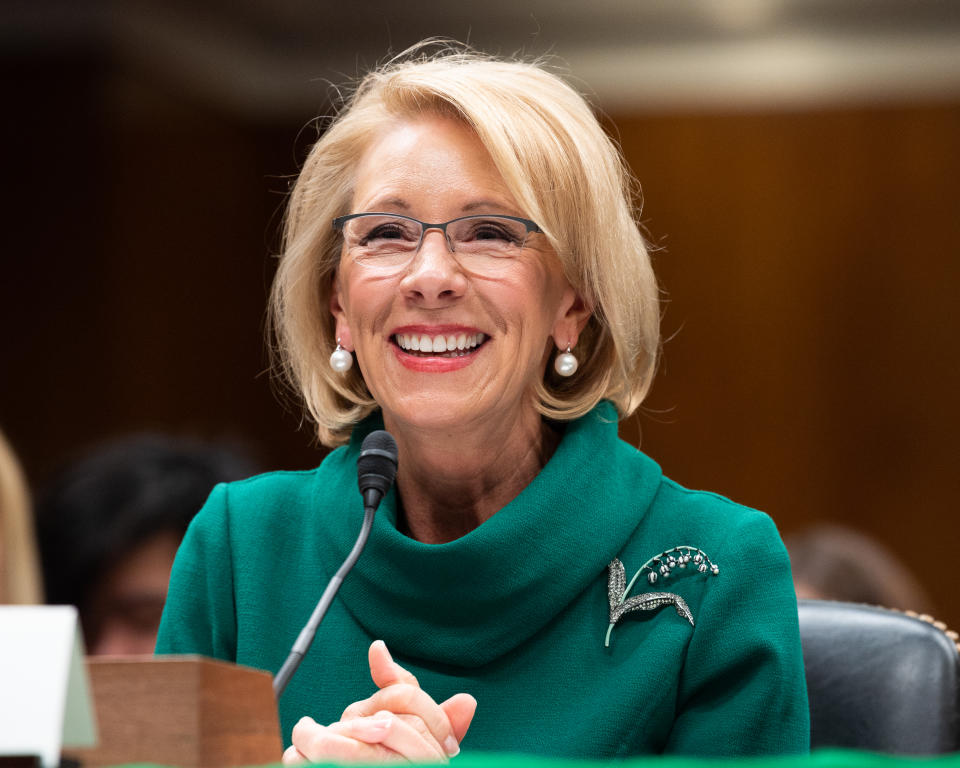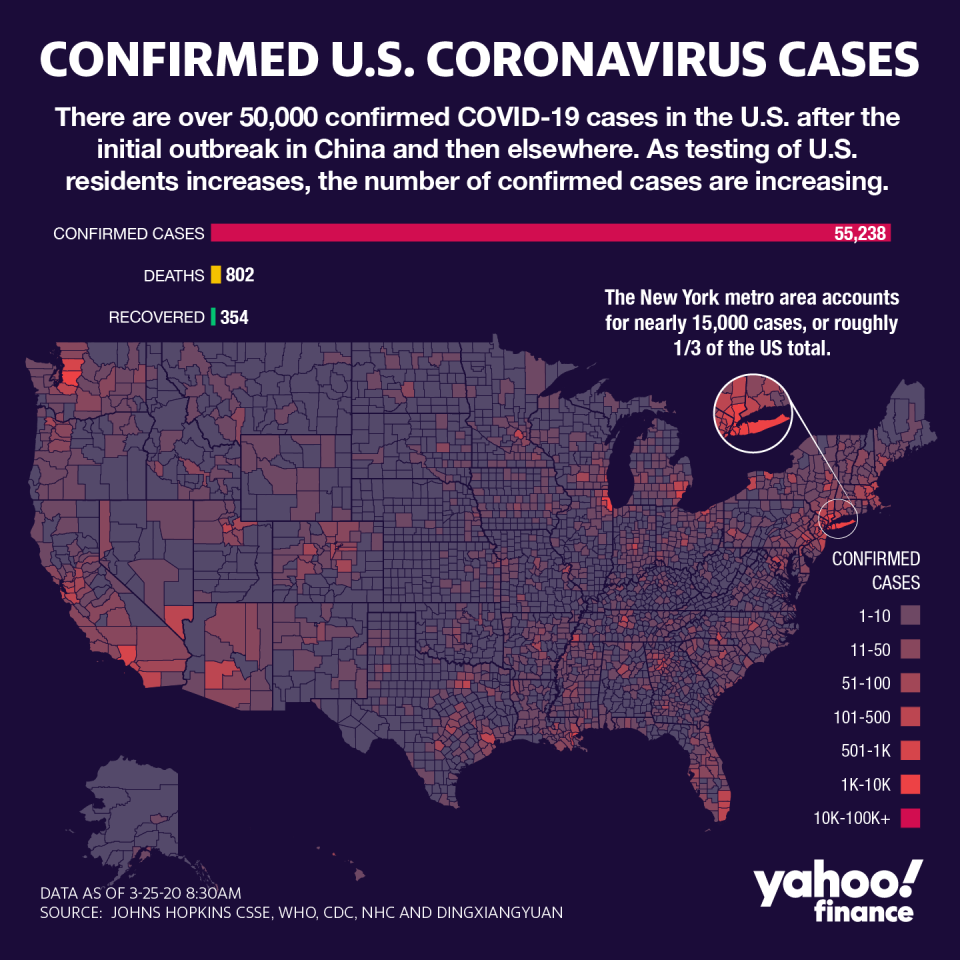Coronavirus: Trump administration stops collection of defaulted federal student loans
The Trump administration will stop seizing wages, tax refunds, and Social Security benefits of Americans who have defaulted on their federal student loans as the new coronavirus or COVID-19 outbreak continues.
“These are difficult times for many Americans, and we don’t want to do anything that will make it harder for them to make ends meet or create additional stress,” Education Secretary DeVos said in a statement. “Americans counting on their tax refund or Social Security check to make ends meet during this national emergency should receive those funds, and our actions today will make sure they do.”
Read more: How to repay student loans: The full breakdown
The department today announced that it will halt requests to the U.S. Treasury to withhold tax refunds, Social Security and other payments, to federal student loan borrowers who had defaulted. In other words, people will no longer have their tax refunds et. al seized, if they owe money on their federal student loans.

For those who already had those federal payments or tax refunds seized (but not the wage garnishments), DeVos authorized her department to refund approximately $1.8 billion to more than 830,000 borrowers.
“The Department expects the number of borrowers who will benefit from this relief to increase,” the press release added, as loan servicers work through to implement these actions.
The agency intends to make this policy retroactive to March 13 (or in other words, since March 13), which is the day President Donald Trump declared a national emergency.
Furthermore, borrowers will face additional protections against debt collectors: DeVos instructed the private collection firms that it employs to collect on default student loans to “halt all proactive collection activities, including making phone calls to borrowers and issuing collection letters and billing statements.”

‘Excellent news’
As the coronavirus outbreak continues, leading to massive job losses in several industries, millions of Americans struggle with their student loans.
In response, the ED had previously lowered interest rates on federal student loans to 0%, allowing people to suspend payments for at least 2 months.
The action reported on Tuesday goes further than that, but not as far as what the House and Senate Democrats have proposed, which is at least $10,000 in debt cancellation.
Still, the move was broadly welcomed by experts.
This is huge! @usedgov is putting a stop to collecting on defaulted federal #studentloans amid the #coronavirus pandemic and ordering private collection firms to stop pursuing borrowers “until further notice." Thank you @BetsyDeVosED for listening! https://t.co/sP5KU38nrA
— Randi Weingarten (@rweingarten) March 24, 2020
This is really excellent news and very glad to see the Trump admin take this step https://t.co/bk5PlBcqCl
— Ben Miller (@EduBenM) March 24, 2020
Our government taking people’s earned income tax credits to pay student loans is inhumane. We’re glad to see it stop during these difficult times. It should become a permanent policy moving forward. https://t.co/NL5GxzEgEc
— Project on Predatory Student Lending (@EdDebtJustice) March 25, 2020
Finally, billionaire @BetsyDeVosED did the right thing for people struggling to afford their #studentloan debt.https://t.co/AanooME6lq
— StudentDebtCrisis (@DebtCrisisOrg) March 25, 2020
At the same time, one expert worried about the implementation.
"The intention is good, but Secretary DeVos needs to provide sufficient guidance to servicers and enforce suspending involuntary garnishment,” Ashley Harrington, director of federal advocacy at the Center for Responsible Lending, said in a statement. “She doesn’t have a good history of overseeing servicers and protecting borrowers.”
She added: “If the Administration really wants to provide relief, it should support broad student loan debt cancellation which is the best way to help defaulted borrowers.”
More than 43 million Americans hold more than $1.51 trillion in outstanding federal student loans, which consist of Direct Loans (83%), Federal Family Education Loans (FFEL, 17%), and Federal Perkins Loan Program (less than 0.5%), according to data from from the agency from February 2020.
During the first quarter of 2020, the percentage of new defaulters had slightly increased as compared to the year before.
—
Aarthi is a reporter for Yahoo Finance. She can be reached at [email protected]. Follow her on Twitter @aarthiswami.
Read more:
Coronavirus shutdown: Consumer advocates worry about $100 billion private student loan market
House Democrats unveil bill to cancel $30,000 in student debt per borrower amid coronavirus
Coronavirus student loan relief: Education Department says borrowers can ask for a payment pause
Read the latest financial and business news from Yahoo Finance
Follow Yahoo Finance on Twitter, Facebook, Instagram, Flipboard, SmartNews, LinkedIn, YouTube, and reddit.
